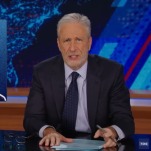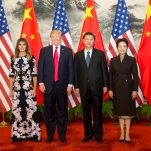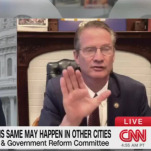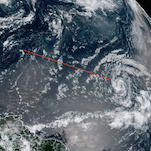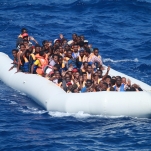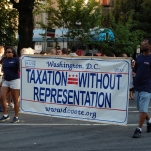Why Are We Bombing Drug Boats?
Screenshot via Donald Trump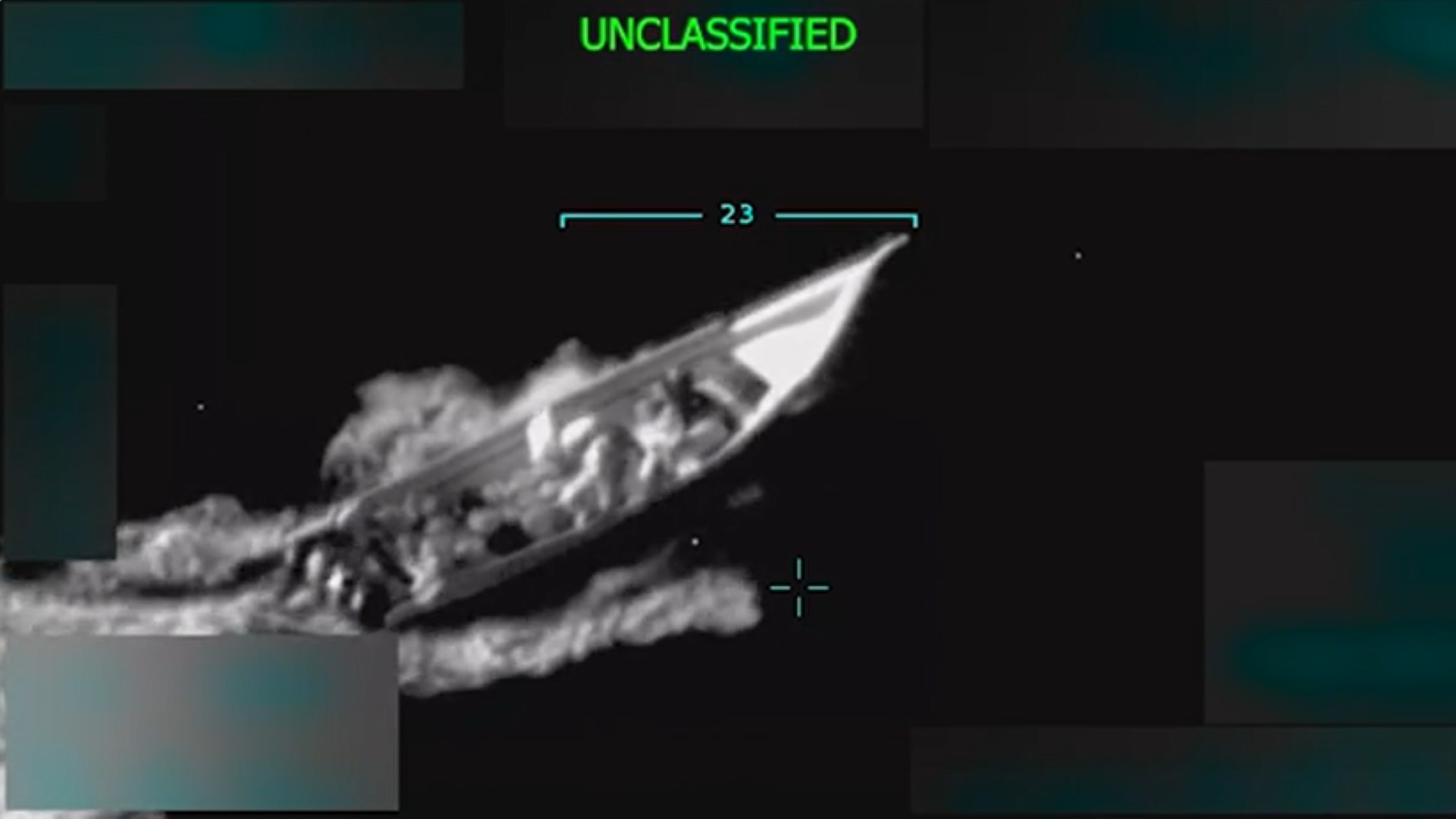
The United States apparently bombed a third suspected drug boat in the Caribbean Sea. “We knocked off, actually, three boats – not two – but you saw two,” Trump told reporters last week.
That the United States may have committed a third, almost certainly illegal lethal strike on a suspected drug boat without bothering to provide much supporting evidence or justification underscores just how brazen and expansive the administration’s so-called war on drugs has been. The United States has historically exerted its dominance in the Western hemisphere, but the Trump administration is explicit about its interventionism.
“While U.S. militarization in Latin America is nothing new, Trump brings an added element of unpredictability, particularly regarding how far such operations might go,” said Clarissa Nascimento Forner, a professor of international relations at the Universidade de Estado do Rio de Janeiro in a message.
To recap: On September 2, the United States said it carried out a strike on a drug smuggling speed boat that killed 11 “Tren de Aragua terrorists,” referring to the Venezuelan gang that the Trump administration has deemed a foreign terrorist organization. The Trump administration justified this strike because illicit drugs kill tens of thousands of Americans each year, and “to address the continuing threat to United States persons and interests emanating from their territories, we have now reached a critical point where we must meet this threat to our citizens and our most vital national interests with United States military force in self- defense,” Trump wrote in a letter to Congress after the attack.
The administration provided a grainy video of the boat and its destruction, which did nothing to back up its allegation that these were Venezuelan smugglers speeding toward America to imminently drop off fentanyl. Secretary of State Marco Rubio originally told reporters that the boat was likely bound for Trinidad and Tobago, or “some other country in the Caribbean,” only to change the destination after Trump claimed it was headed toward the United States. Yet U.S. officials told the New York Times that the boat appeared to have turned around before the strike because it spotted the military aircraft overhead. The Intercept also reported that the U.S. may have struck multiple times because the people on board survived the initial attack.
Last week, the Trump administration claimed to have destroyed another boat with three people aboard. Again, the administration offered no evidence other than a video and its word. “All you have to do is look at the cargo that was, like — it spattered all over the ocean, big bags of cocaine and fentanyl all over the place, and it was — plus, we have recorded evidence that they were leaving,” Trump said. Then, he said offhandedly to reporters last Tuesday that the U.S. blew up a third boat, but didn’t offer any details until Friday, when Trump posted on Truth Social that he had ordered “a lethal kinetic strike on a vessel affiliated with a Designated Terrorist Organization conducting narcotrafficking,” which suggests the administration is doing whatever the heck it wants without even bothering to come up with fake pretenses. (Splinter reached out to both the White House National Security Council and U.S. Southern Command, although it’s safe to assume they are not going to be responding.)
There are two enormous issues here. The first, is the very, very likely illegality – and the fact that the administration not only doesn’t seem to care, they’re openly and gleefully flaunting it. The second is a broader ratcheting up of interventionism and military pressure in the Western hemisphere, without a clear objective of what it seeks to accomplish with both its drug crackdown and its broader national security goals. Most recent data shows the Pacific as a much busier route for drugs coming into the United States, so it’s not clear what taking out tiny boats in the Caribbean accomplishes, other than a cruel whack-a-mole that serves a lust that this administration has to look tough. (Unless you’re Russia or China, where the U.S. attitude is basically “do whatevs.”)
Right now, the Trump administration looks as if it’s combining the most egregious elements of the global war on terror with the worst elements of the war on drugs. That combination would be troubling enough, but it is carried out by an administration that has been untransparent and emboldened in its show of force at home and abroad. What could possibly go wrong?
This Seems to Be Very Illegal, Even by the Sometimes Malleable U.S. Standards
Many, many legal scholars have said this strike looks illegal under both domestic and international law. Unless the information available radically changes, it’s not really a close call. While the Trump administration has designated drug cartels like Tren de Aragua as foreign terrorist organizations (the Biden administration, for example, designated them as a transnational criminal organization), these were not armed combatants engaged in a war with the United States, which means that it looks very likely that the U.S. military just committed some murders.
-

-

-

-

-

-

-

-

-

-

-

-

-

-

-

-

-

-

-

-

-

-

-

-

-

-

-

-

-

-

-

-

-

-

-

-

-

-

-

-

-

-

-

-

-

-

-

-

-

-

-

-

-

-

-

-

-

-

-

-

-

-

-

-

-

-

-

-

-

-

-

-

-

-

-

-

-

-

-

-

-

-

-

-

-

-

-

-

-

-

-

-

-

-

-

-

-

-

-

-

-

-

-

-

-

-

-

-



































































































